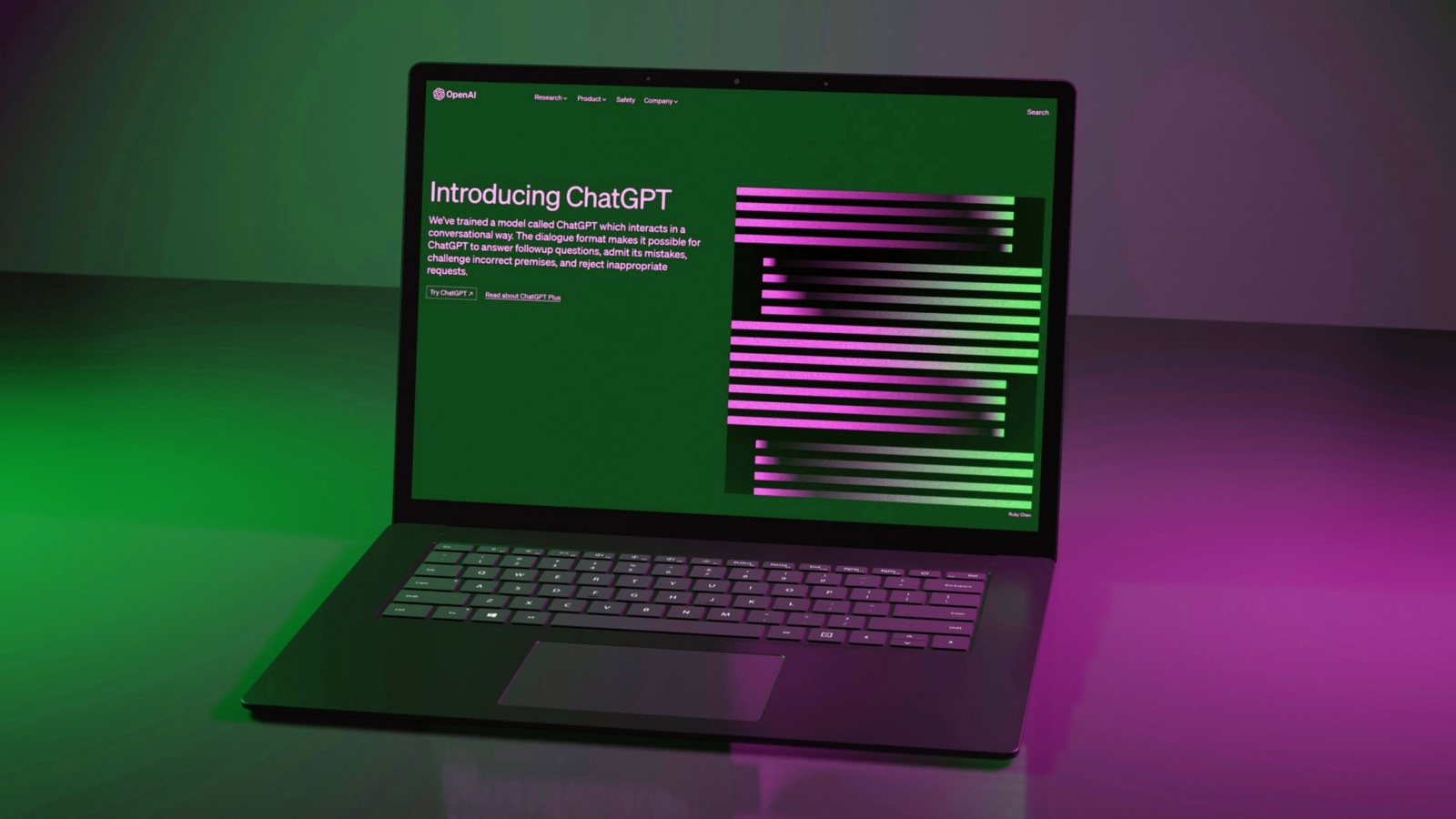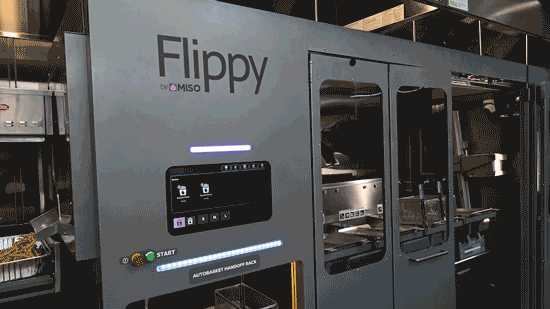Good morning.
The name Helene comes from the Greek word for sun or light, but Hurricane Helene has brought little but gloom with an estimated $95 billion to $110 billion in damages across Florida, Georgia, Tennessee, and the Carolinas over the weekend.
Millions were left without power and at least 64 fatalities were reported as of late Sunday. Emergency responders continue to work around the clock to support people who have incurred losses from the storm. The Federal Emergency Management Agency recommends donating to the state chapters of the nonprofit National Voluntary Organizations Active in Disaster, which you can do here. Give a little if you can — it helps.
AI is Passing the First Stage of its Antitrust Era

It’s not a hallucination: AI companies have actually managed to placate at least one national regulator.
The UK’s Competition and Markets Authority (CMA) has given the go-ahead to two big AI deals this month that saw Big Tech companies invest in smaller generative AI startups — which critics clocked as looking suspiciously like acquisitions in disguise. It’s a methodology that’s under intense scrutiny from US regulators as well, and while the UK’s CMA doesn’t quite have the same clout, it did have the potential to make life difficult for Big Tech companies with big AI hopes.
The British Aren’t Coming
Big Tech companies have long housed their own AI departments, but post-ChatGPT, many large tech companies opted to take big stakes in smaller AI startups — for example, Microsoft’s stake in OpenAI. Regulators, including the US Federal Trade Commission and Department of Justice, raised their hackles: They think these strategic investments might amount to mergers and acquisitions, but have sidestepped all the attached paperwork and laws.
The CMA has been a thorn in the side of Big Tech acquisitions before. Its judgment on Meta’s proposed acquisition of Giphy forced the Silicon Valley giant to unwind the deal. As such, the CMA’s investigations into AI investments hold some existential threat, but so far, it has decided that Big Tech’s big bets on AI startups are actually above board:
- On Friday, the CMA cleared an investigation into Amazon’s $4 billion investment into AI startup Anthropic. That’s in large part because Anthropic doesn’t make up a big enough slice of the UK AI market for the CMA to really worry about it — the deal is still under investigation by the FTC.
- Earlier this month, the CMA also cleared Microsoft’s investment in startup Inflection AI, which was widely seen as an “acqui-hire.” The deal wasn’t even probed by the European Union, which is normally pretty swift to bring down the ax on Big Tech.
Tech companies certainly aren’t slowing down with their acqui-hiring; if anything, they’re getting more bombastic. The Wall Street Journal reported last week that Google acquired Character.AI, the company of former employee Noam Shazeer, just because it wanted Shazeer himself back in its stable. The price? A mere $2.7 billion, sources said.
Friends Old and Newsom: On Sunday the AI industry breathed another small sigh of regulatory relief as California Governor Gavin Newsom vetoed a bill that would have brought in mandatory safety measures for large AI companies. Newsom said he thought the bill was “well-intentioned” but ultimately too restrictive.
Exodus Continued: While Google is pouring money into AI talent, AI talent is pouring out of OpenAI. Last week three OpenAI executives, including Chief Technology Officer Mira Murati, departed the company, which has seen a steady trickle of top hires leaving this year. Don’t forget, it’s not quite a year since CEO Sam Altman was briefly fired then re-hired, and according to a Friday report from the WSJ, the company is experiencing severe growing pains as it transitions from a nonprofit research lab to a for-profit company that, per the WSJ, still loses billions a year.
One Giant Leap for Restaurant AI

The move from prototype to commercial product is critical for startups. They’ve proven their tech, their customers want it, and they can now start growing revenues. That’s exactly what’s happening at Miso Robotics. And unlike most startups in that position, you can invest in Miso at this pivotal moment.
Miso’s honed their AI-powered kitchen robots at major fast food brands like White Castle and Jack in the Box. With 150,000+ hours of training data and 3M baskets cooked in live kitchens, Miso just launched the new generation of Flippy Fry Station, which sold out its initial run in just seven days. It’s smaller, faster, and smarter – tailor-made for today’s fast food kitchens.
There are 170 brands and 100,000+ fast food locations in need. Join Miso as a shareholder before their raise ends Oct. 18, and tap into the restaurant automation revolution today.*
Controversial CEO of Bankrupt Steward Health Care to Resign
The private equity industry is losing its greatest antihero.
As his for-profit hospital network collapsed and medical workers were left without the basic necessities to do their jobs, Steward Health Care CEO Ralph de la Torre allegedly funneled tens of millions of dollars to himself, wasted millions more on hiring spies (yes, spies) to go after his perceived enemies, got his firm embroiled in a Maltese money-laundering scandal, and bought himself a $40 million superyacht. Even most James Bond antagonists would say that’s a little on the nose. But his embattled tenure is coming to an end: On Saturday, the company said that de la Torre will resign, effective Oct. 1.
Private Inequity
Dallas-based Steward is — much to the industry’s chagrin — the poster child for private equity investment in healthcare gone wrong (and much has). The company, backed by the deep pockets of PE giant Cerberus, spent the 2010s buying up hospitals. Cerberus made an $800 million profit in the decade leading up to 2021, when it transferred ownership of Steward to company management in exchange for a $350 million note due five years later.
Cerberus made this money because Steward sold off over $1 billion of its hospitals’ land and buildings to a real estate investment trust. Meanwhile, its hospital network — over 31 hospitals in eight states with 30,000 employees at the time of its bankruptcy filing in May — lost hundreds of millions and piled up debt, while the new owners paid themselves millions in dividends:
- While investors and management got rich, Steward’s facilities are alleged to have fallen into substandard condition — earlier this month, a Boston Globe investigation identified at least 15 cases in which patients died after failing to receive professionally accepted standards of care. Exterminators sued Steward for not paying them nearly $1 million in owed bills, alleging there were 3,000 bats in one Florida hospital, while staff has alleged chronic underfunding that’s led to a lack of equipment and unsafe working conditions.
- Steward has over 100,000 creditors, including employees, staffing firms, medical device manufacturers, and the IRS, but the company paid at least $250 million to de la Torre and companies he has stakes in before going bankrupt.
53 Years: Federal authorities in Boston have opened a criminal fraud and corruption probe. Last week, the US Senate voted unanimously to hold de la Torre in criminal contempt for refusing to testify after being subpoenaed by a bipartisan group of lawmakers studying Steward’s collapse. It’s the first time the Senate has referred a contempt case to the Department of Justice since 1971, according to Senator Ed Markey.
Is Amazon Finally Breaking into the News Industry?
Amazon’s next delivery to your home might just be a 65-year-old newsman.
The e-commerce, cloud computing, and media titan is in talks with veteran TV news anchor Brian Williams to host an election night special, Variety reported this weekend. The move would bring primetime news to Amazon Prime Video, at least for one night.
Broadcast Blues
After breaking into TV and movies, Amazon has burst into the world of live programming by snatching up long-term — and expensive — broadcast rights to the NFL and NBA, the latter of which starts next season. But, like most of the rest of the streaming world, the e-commerce giant has shown next to no interest in live news.
With Williams, who’s been out of a job since leaving his MSNBC post in 2021 (his first tour at the network ended after a verisimilitude controversy), Amazon may have found an industry veteran to help them break in. The one-off program would focus more on analysis from a stable of commentators and newsmakers rather than breaking news, sources told Variety.
It’d be a big first step into live news, though it is an audience pool that seems to be shrinking in real-time:
- An estimated 56.9 million people tuned in to election night coverage across 21 networks in 2020, according to Nielsen ratings (for reference: 102 million people watched the Super Bowl on Fox that year). That was down from 71 million viewers across 13 networks in 2016, per Nielsen, though Fox News’ 13.7 million viewers in 2020 marked the highest figure ever recorded by a cable news station on election night.
- Making the space somewhat less appealing for broadcasters (and their advertisers): the audience. The median age of MSNBC, Fox News and CNN viewers is 70, 69, and 67 years old, respectively. No wonder Amazon is opting for such a — shall we say — familiar face for its first foray into TV news.
Scripps Creek: Amazon’s first election night might just be another competitor’s last. On Friday, E.W. Scripps CEO Adam Symson told employees in a note that Scripps News, the company’s 24/7 over-the-air national news station, would be winding down operations by November 15. News flash: TV news is a tough industry.
Extra Upside
- The Big Port: Longshore workers on the East and Gulf Coasts are preparing to strike on Tuesday.
- Steely Ban: Presidential candidate Donald Trump pledges to block Nippon Steel’s US Steel acquisition.
- Stop Letting Data Brokers Profit Off Your Info. Your personal information is being sold online, without your consent. Incogni finds and removes it from data broker sites, protecting you from identity theft and scams. Protect yourself – sign up for Incogni today.**
** Partner
Just For Fun
Disclaimer
*This is a paid advertisement for Miso Robotics’ Regulation A offering. Please read the offering circular at invest.misorobotics.com.

